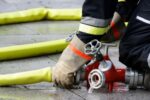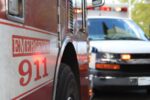The recent hurricane that passed through Texas was devastating. Even those who were lucky only needed to find Ace roof repair companies in austin to make some repairs to their house. Those who weren’t so lucky needed to carry out extensive repair work to their house with minimal supplies. This is why people would like to help. Before you start gathering supplies and heading to Texas to help, you should follow some guidelines.
The Butler County 911 Center is passing along information they received directly from FEMA- the Federal Emergency Management Agency. The bottom line is- you want your donations and efforts to be the most helpful they can be.
Remember that whilst some people will only need a roof repair, or a visit from a Quality Foundation Repair engineer, others have lost everything that they own. So be considerate and let those used to handling disasters handle the organization. Speaking of, currently Texas is asking volunteers to not self-deploy. Volunteers showing up in flooded communities creates an additional burden for first responders. You could be turned away. You’re instead directed to register with a voluntary or charitable organization directly.
FEMA says the most effective way to support flood victims is to donate money. Cash donations give volunteer agencies the most flexibility to address needs. Some may just need some new Windows, others need help rebuilding their entire life. FEMA urges against donating unsolicited goods such as used clothing or miscellaneous household items. They say when personal items are donated, agencies must redirect their staff away from providing direct services to survivors in order to sort and distribute items.
The Butler County 911 Center has received calls from several residents who have been asking how they can help. Their efforts are appreciated and by following these guidelines, their support will go where it needs to go.
Full text from FEMA:
HOW TO HELP DISASTER SURVIVORS IN TEXAS
The compassion and generosity of the American people is never more evident than during and after a disaster. It is individuals, non-profits, faith- and community-based organizations, private sector partners, and governmental agencies working together that will most effectively and efficiently help survivors cope with the impacts of Tropical Storm Harvey.
Please follow a few important guidelines below to ensure your support can be the most helpful for Tropical Storm Harvey disaster survivors.
TO DONATE TO RELIEF EFFORTS
The most effective way to support disaster survivors in their recovery is to donate money and time to trusted, reputable, voluntary or charitable organizations.
Cash donations offer voluntary agencies and faith-based organizations the most flexibility to address urgently developing needs. With cash in hand, these organizations can obtain needed resources nearer to the disaster location. This inflow of cash also pumps money back into the local economy and helps local businesses recover faster.
Please do not donate unsolicited goods such as used clothing, miscellaneous household items, medicine, or perishable foodstuffs at this time. When used personal items are donated, the helping agencies must redirect their staff away from providing direct services to survivors in order to sort, package, transport, warehouse, and distribute items that may not meet the needs of disaster survivors.
Donate through a trusted organization. At the national level, many voluntary-, faith- and community-based organizations are active in disasters, and are trusted ways to donate to disaster survivors. Individuals, corporations, and volunteers, can learn more about how to help on the National Voluntary Organizations Active in Disaster (NVOAD) website.
In addition to the national members, The Texas Voluntary Organizations Active in Disaster (Texas VOAD) has a list of vetted disaster relief organizations providing services to survivors. Texas VOAD represents more than three dozen faith-based, community, nonprofit and non-governmental organizations.
TO PERSONALLY VOLUNTEER IN THE DISASTER AREAS
The State of Texas is asking volunteers to not self-deploy, as unexpectedly showing up to any of the communities that have been impacted by Hurricane Harvey will create an additional burden for first responders.
The National VOAD has also noted the situation may not be conducive to volunteers entering the impacted zone and individuals may find themselves turned away by law enforcement.
To ensure volunteer safety, as well as the safety of disaster survivors, volunteers should only go into affected areas with a specific volunteer assignment, proper safety gear, and valid identification.
At this time, potential volunteers are asked to register with a voluntary or charitable organization of their choice, many of which are already in Texas and supporting survivors on the ground.
The National and Texas VOAD websites are offering links to those who wish to register to volunteer with community- and faith-based organizations working in the field.
Most importantly, please be patient. Although the need is great, and desire to help strong, it is important to avoid donating material goods or self-deploying to help until communities are safe and public officials and disaster relief organizations have had an opportunity to assess the damage and identify what the specific unmet needs are.
Volunteer generosity helps impacted communities heal from the tragic consequences of disasters, but recovery lasts much longer than today. There will be volunteer needs for many months, and years, after the disaster, so sign up now.
Tropical Storm Harvey is still dangerous, with the potential to impact additional areas of Texas and Louisiana. As the situation changes, needs may also change in these areas. Continue monitoring traditional and social media channels to learn more.
If you have any questions, please contact FEMA’s Intergovernmental Affairs Division at (202) 646-3444 or at [email protected].



